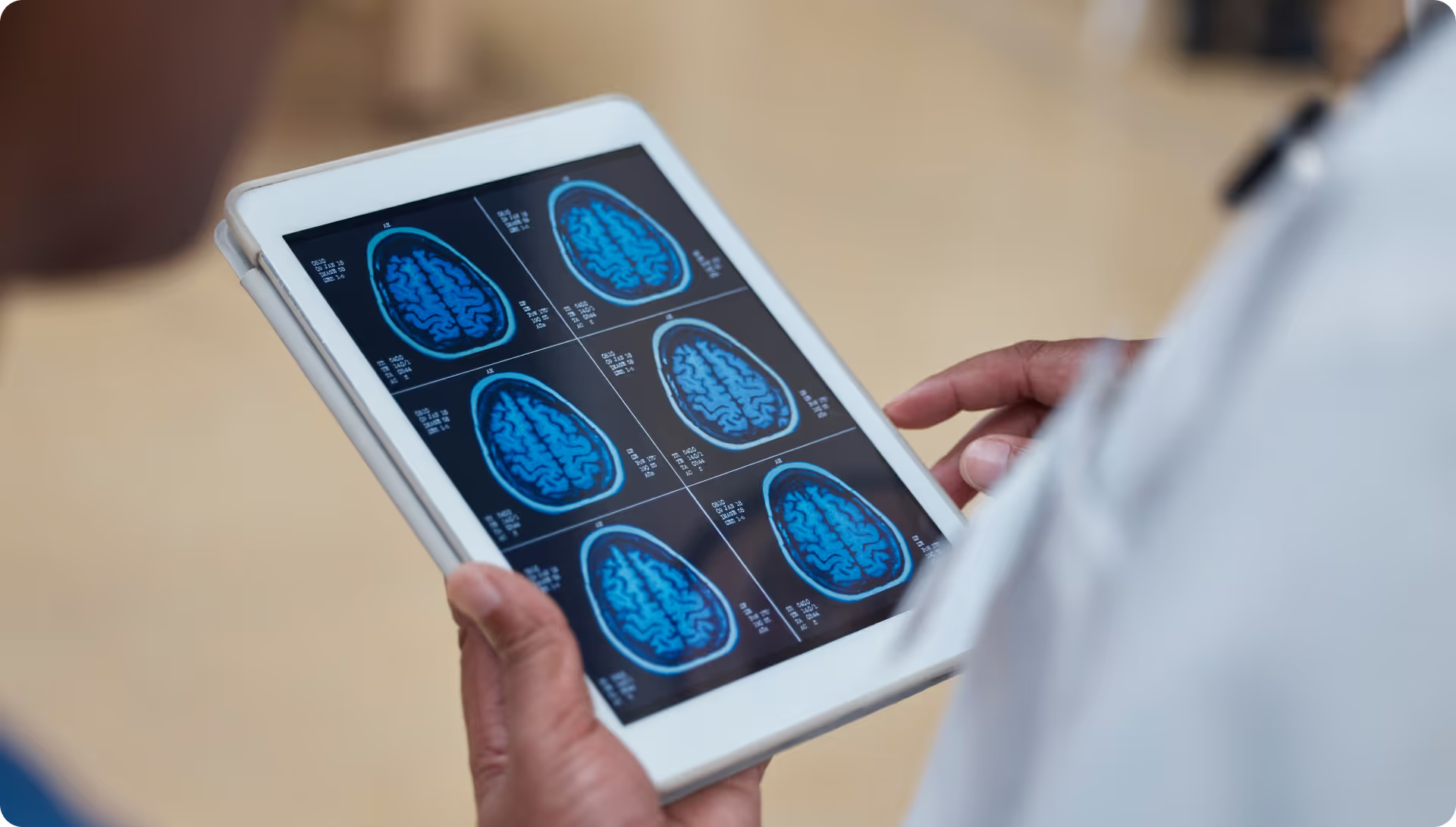
What are advanced diagnostics?
Advanced diagnostics at Salma Health combine cutting-edge imaging, neurophysiological testing and laboratory assessments to uncover the root causes of brain and behavioral health conditions.
By moving beyond conventional evaluations, advanced diagnostics allows us to pinpoint subtle changes in your brain structure, function and chemistry, providing important data necessary to build precise, personalized treatment plans.
How does it work?
Each test provides a different piece of the puzzle. Together, they help us to understand how your brain is working and guide evidence-based treatment decisions for you. Advanced diagnostic tools may include:
- MRI and fMRI scans to visualize brain structure and map areas of activity.
- EEG and QEEG (quantitative EEG) to measure brainwave patterns and identify abnormal activity.
- Cognitive and neuropsychological testing to assess memory, attention, processing speed and executive function.
- Laboratory panels to check for metabolic, hormonal or inflammatory markers affecting your brain health.
- Genetic testing as appropriate, to identify risk factors or treatment sensitivities.
Treatment plan
Each patient’s diagnostic plan begins with a consultation. We discuss your symptoms, medical history and treatment goals. From there, our team determines which advanced diagnostic tools are appropriate for your individual situation.
Step 1: Initial Consultation
- Comprehensive intake with a Salma Health provider.
- Review of medical, psychiatric and family history.
Step 2: Diagnostic Testing
- A tailored set of assessments may include imaging, EEG or lab work both at our clinic and any labs as needed.
- Testing is performed in a comfortable, patient-friendly environment.
Step 3: Data Analysis
- Our clinicians interpret results using neuroscience-informed methods.
- Findings are compared to healthy brain benchmarks.
Step 4: Personalized Care Plan
- Results are explained clearly in a follow-up session.
- The care plan may include medication, neuromodulation, therapy or lifestyle recommendations.
Step 5: Ongoing Monitoring
- Repeat Assessments may be recommended to track progress over time.
- Data-driven updates ensure your treatment stays effective and personalized.
Getting started
If you or a loved one have been struggling with symptoms and want answers, please schedule a free video call with our team. We will walk you through the diagnostic process and help you understand all of the options available to you.




.avif)
.avif)
.avif)